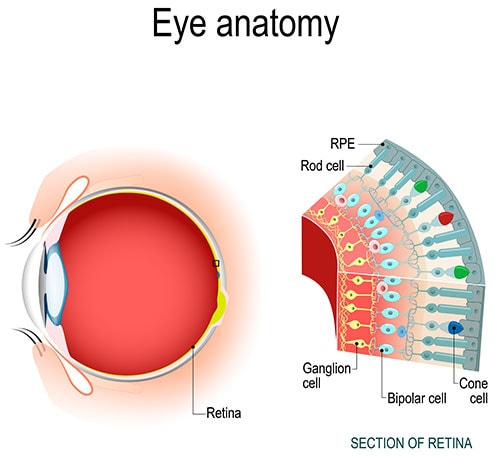All Categories
Featured

While a lot of people recognize the importance of safeguarding their skin from the sunlight, the unsafe impacts of ultraviolet (UV) rays on eye wellness often go neglected. Whether you're soaking up the sun on a summer day or strolling outdoors on an over cast mid-day, safeguarding your eyes from UV rays is vital.
What Are UV Rays? UV rays are a kind of electromagnetic radiation discharged by the sunlight. They are classified right into 3 types:
UVA Rays: These penetrate deep into the skin and eyes and can add to long-lasting damages. UVB Rays: These rays are extra extreme than UVA and are mostly liable for surface-level damage to the eyes and skin. UVC Rays: These are the most hazardous but are mainly soaked up by the Planet's ozone layer and don't typically reach us. UVA and UVB rays are the key wrongdoers behind eye-related damages.
Short-Term Effects of UV Exposure on the Eyes. Also short-term exposure to extreme UV rays can harm your eyes. One usual problem brought on by this is photokeratitis, or "sunburn of the eye." Signs of photokeratitis include:
Painful, red eyes. Level of sensitivity to light. Tearing or too much watering. Short-term vision loss or blurred vision. Photokeratitis is typically short-term, but it functions as a caution of just how damaging UV direct exposure can be, even in tiny doses.
Long-Term Impacts of UV Exposure. Extended direct exposure to UV radiation can bring about more major and permanent eye problems, such as:
Cataracts: UV rays can speed up the development of cataracts, a problem that triggers clouding of the eye's natural lens, bring about fuzzy vision and, if unattended, blindness.

Macular Degeneration: UV direct exposure can damage the retina, especially the macula, enhancing the risk of age-related macular degeneration (AMD), which influences main vision.
Pterygium: A growth of tissue on the white component of the eye that can cross the cornea, triggering discomfort, soreness, and vision problems.
Pinguecula: UV exposure can trigger yellowish deposits to create on the conjunctiva, resulting in irritation and dry skin.
Skin Cancer Around the Eyes: The delicate skin bordering your eyes is highly at risk to UV radiation, increasing the threat of skin cancers like basal cell cancer and squamous cell cancer.
Exactly How to Protect Your Eyes from UV Rays. Safeguarding your eyes from UV rays is easy and requires a few mindful practices:
Invest in Quality Sun glasses: Choose sunglasses that block 100% of UVA and UVB rays. Search for labels that specify "UV 400" defense. Wrap-around designs are perfect as they block UV rays from the sides as well.
Wear a Wide-Brimmed Hat: A hat with a brim a minimum of three inches large can considerably minimize UV direct exposure to your eyes and face.
Restriction Exposure Throughout Top Hours: UV rays are greatest in between 10 a.m. and 4 p.m. If you have to be outdoors during these hours, ensure you're appropriately secured.
Do Not Be Misleaded by Clouds: UV rays can permeate with clouds, so it's important to wear sunglasses also on overcast days.
Protect Your Eyes Year-Round: Snow, sand, and water can mirror UV rays, magnifying their results. Eye security isn't simply for warm summer days-- ensure you're covered in all periods.
Usage UV-Blocking Contact Lenses: Numerous call lenses currently come with UV defense. If you use get in touches with, ask your eye physician concerning lenses with built-in UV filters for included security.
Motivate Eye Security for Kid: Children's eyes are extra sensitive to UV rays since their lenses are clearer, enabling more radiation to get to the retina. Make certain they use sunglasses and hats during outdoor activities.
Routine Eye Examinations. Regular examinations with an eye care professional are crucial for very early detection of any type of UV-related damages. An optometrist or ophthalmologist can examine your eyes, advise protective steps, and spot problems like cataracts or macular degeneration early.
Final thought. By using UV-blocking sunglasses, restricting sun exposure during peak hours, and remaining regular with eye exams, you can guarantee your eyes remain healthy and balanced and your vision remains clear for years to come. Securing your eyes from UV radiation isn't simply concerning comfort-- it's a crucial step in preserving your long-lasting eye health and wellness.
Latest Posts
Add Convenience and Personality to Your Home with Location Rugs
Seamless Floor Covering Installation-- The Carpet Interiors Floor & Home Method
See the Montclare Advantage - Professional Auto Repair
More
Latest Posts
Add Convenience and Personality to Your Home with Location Rugs
Seamless Floor Covering Installation-- The Carpet Interiors Floor & Home Method
See the Montclare Advantage - Professional Auto Repair